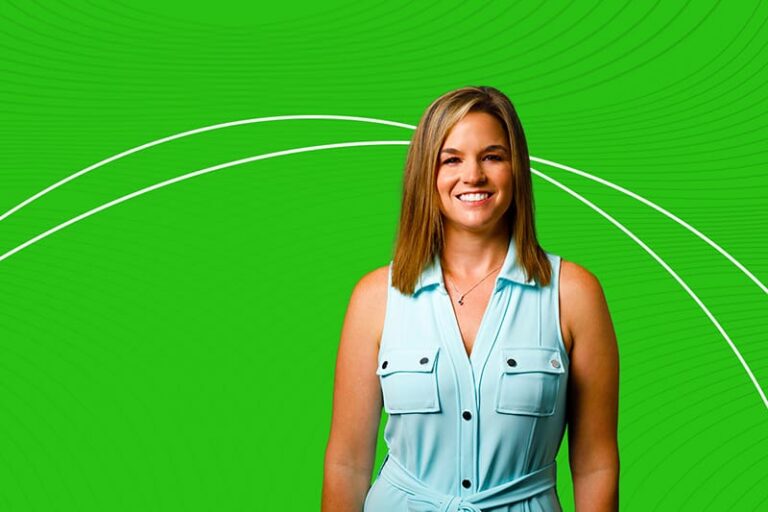Launching a new healthcare brand this year? Trying to revitalize an established one? Consider these facts: On average, about 40 new drugs are launched each year. Over 6,000 U.S. patents were granted for medical devices in 2022. Retail behemoths like CVS and Amazon are pushing their way into providing comprehensive medical services. Industry giants like Pfizer and Johnson & Johnson can outspend everyone else 100 to one.
More than any other, the healthcare industry is in a constant state of explosive change. If you’re a newcomer trying to speed up adoption of a new drug, redefine the way care is delivered or revamp an antiquated business model, you have a mountain to climb. Relying on luck and good fortune will not get you where you need to go. The good news is that by refusing to do things the way they’ve always been done – by acting like a challenger brand – you have a better shot of going up against the industry giants.
David versus Goliath is a great example of a challenger brand success story. With a mere slingshot, David outsmarted, outmaneuvered and defeated a giant who had more weapons, more experience and (literally) deeper pockets. David didn’t rely on luck (and you shouldn’t either). He relied on agility, speed and superior technology to win.
Healthcare is all about science and data, not chance. Luckie Health has always believed healthcare marketing should be held to the same high standard.
Here are three simple tips to help you act like David and improve your odds of winning.
1. Find the blind spots.
As the industry newcomer, you have the vitality of inexperience and the advantage of agility. Many healthcare giants are weighed down by conventions and process. You’re free to lean into new, innovative ideas without attracting much attention from the established brands. Use these advantages to capitalize on weaknesses in the category, to find the blind spots others have missed. Challenge the norms and compete on your terms.
When one of our pharma partners launched a new drug, we partnered with them to reimagine traditional launch activities. To blunt being significantly outspent by the competition, we built a digital-first plan that could be personalized and customized for the target HCPs. As a result, we helped our client reach 5,000 doctors within 80 minutes of FDA approval and within minutes of regulatory approval in 20 countries. By ignoring industry tradition, the launch exceeded all industry benchmarks and became the first global launch protocol in pharmaceuticals.
What’s your slingshot?
2. Redefine the battle.
Your invisibility buys you time to take a step back and spot both opportunities and threats in the marketplace. As a little-known challenger, you have a line of sight to weaknesses in the category, providing an opportunity to stake a claim for something real people care about – to lead with purpose – rather than what the industry has established. Be sure to war-game your direction, consider how your competitors will react and test the potential outcomes. And remember, you can act like a challenger brand even if you’re not.
Consider the manufacturer of a well-known European pain medicine that had been a market leader for decades. When it was launching into very competitive markets in Mexico and the U.S., the brand acted like a challenger. Rather than being lost in the crowd with conventional pain relief messaging about drug efficacy on the toughest pain (featuring stereotypical tough guys), it raised awareness and grew market share by reframing the conversation around the relief and pleasure of moving freely again. This differentiated the brand by touting its mechanism of action while tying it to emotional stories from men and women who had experienced relief from everyday pain. This challenger behavior resulted in consumer trial, coveted end-of-aisle store placement and solid gains in market share.
What weakness have you spotted in your competition?
3. Never give up.
From the beginning, set expectations for a long-term strategy. While there is tremendous pressure to deliver results within a tight window, the reality is that launches take more than one cycle or one year to succeed. As a startup, create momentum early by showing up in unexpected ways and rebelling against the status quo (because let’s face it, 33% efficacy claims are never good enough). Build in opportunities to optimize and pivot based on what your data says.
This is where we see disrupters in the insurance industry showing up. Big, established insurance brands might not feel threatened by newcomers such as Oscar or Lemonade, because their market share is so minuscule. But these challenger brands are making inroads in capturing consumer interest. They are rebelling against industry conventions (no TV advertising!), assuming thought leadership for the category and demonstrating a commitment to a specific point of view. With a laser-like focus on digital marketing, they’re meeting new point-of-entry consumers where they are. And they’re offering products and messaging that real people care about (i.e., they’re not talking about rates). By playing in a nimble marketing channel with enormous opportunity for personalization, Oscar and Lemonade are building loyalty and quickly gaining traction.
How are you showing up in unexpected ways?
It’s important to note that acting like a challenger is not just for startups or new entrants in a category. If you’re an established healthcare brand, adopting a challenger mentality will lead to innovation. Staying No. 1 means thinking like No. 2. This will crystallize your opportunities and ultimately protect your market share.
At Luckie, we have an affinity for working with brands that share our challenger mindset. Rather than relying on past successes, industry norms or luck, we use real-time data and analytics to help our partners remove chance from their marketing approach and engage new customers faster. We are smarter, quicker and more nimble than any giant. If you think your brand might be more reliant on luck than data, we can help you understand where luck might be hiding through our no-obligation audit. Just reach out to John.Petersen@luckie.com to learn more.




